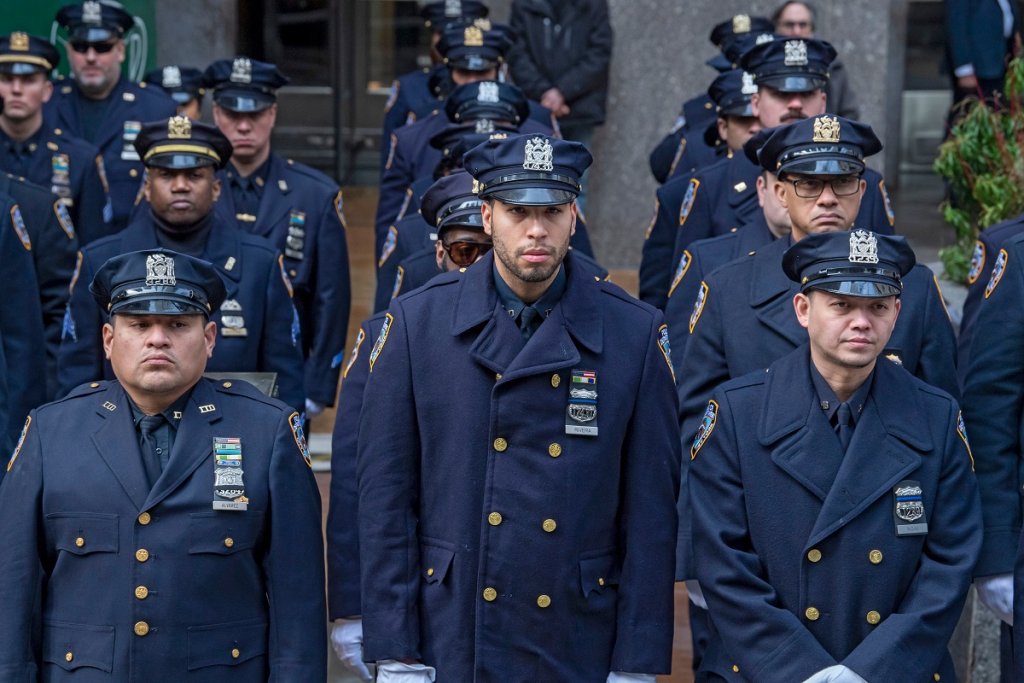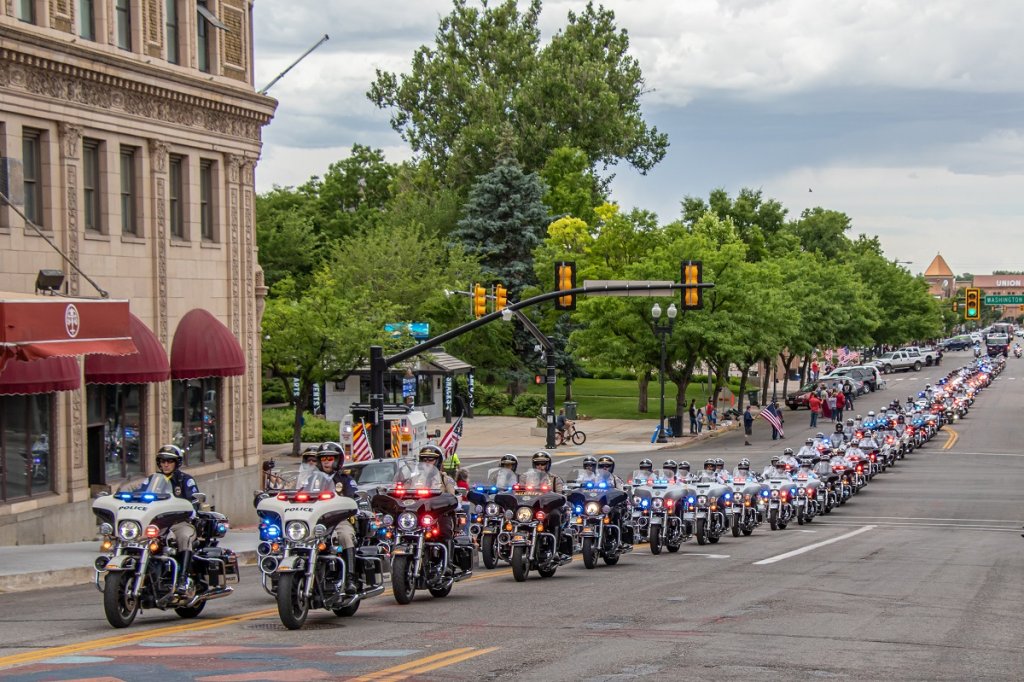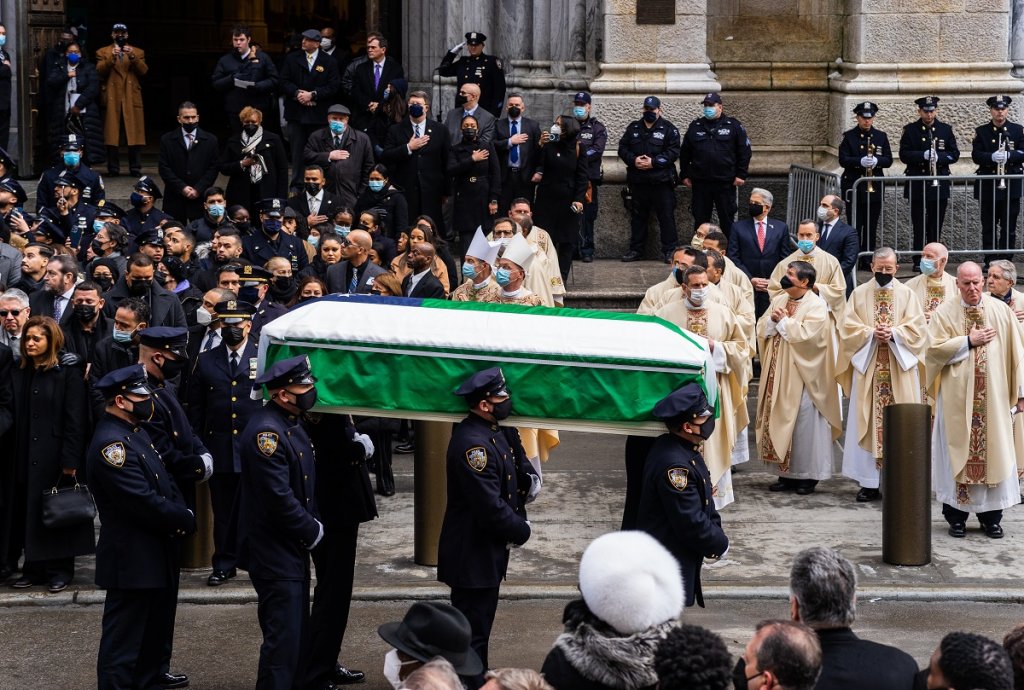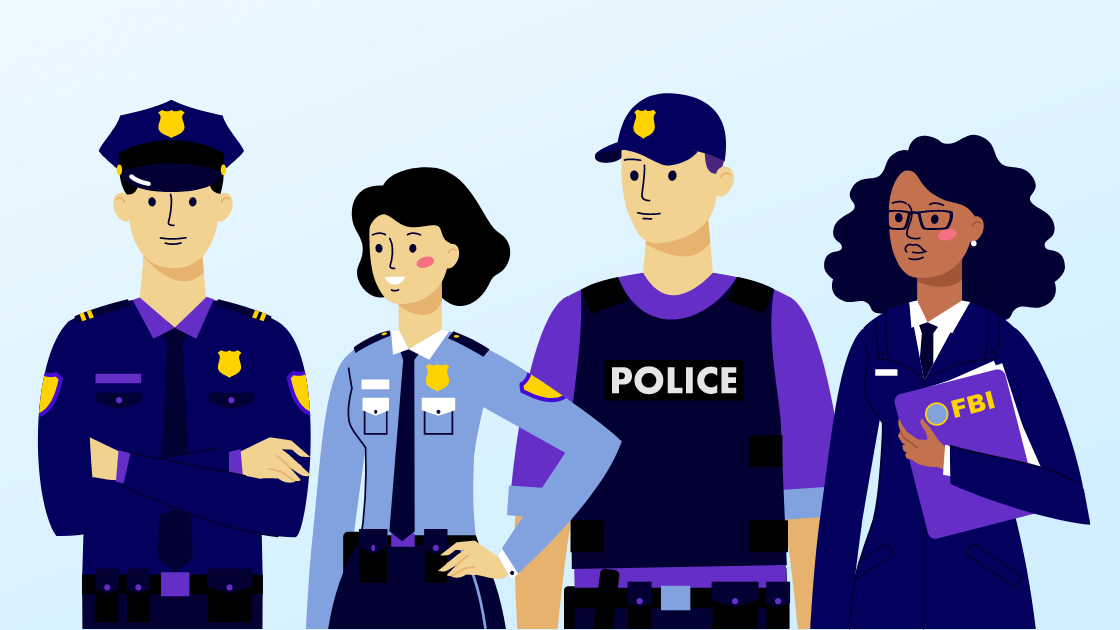Whether a police officer dies in the line of duty or experiences a natural death while active or retired, they are entitled to a police funeral. The emphasis in these events is on honor, service, and gratitude. Funerals after line of duty deaths merit full honors and may attract support from outside the area.
When the deceased person is a fallen police officer, funeral etiquette dictates unique things that will occur at the funeral to honor their service. Whether or not the officer was killed in the line of duty or while active will dictate exactly what will occur. Mourners will experience bagpipes, a flag-draped coffin, and many other fascinating and lovely tributes steeped in tradition.

Table of Contents
Who Qualifies for a Police Funeral?
As with firefighters, several classes of people qualify for police funerals.
- A police officer killed in the line of duty (LODD) will warrant the officer receiving the highest honors that the department will offer.
- Officers killed off-duty would still qualify to receive a law enforcement funeral, but the honors are a bit scaled back, as is the ceremony.
- Civilian employees who work for the police department can receive a police funeral with some honors for the deceased.
- Family members of a police officer may receive some honors if they have a police funeral.
Customs For Police Funerals
When a law enforcement team member passes away, there are many traditions that acknowledge their service. There are different situations where a deceased officer would receive the honors:
- If a police officer passes away, whether it is while working or not, they are entitled to honors.
- Retired police officers who pass away are also entitled to honors. Of course, it is also somewhat scaled back.
A police officer killed in the line of duty will receive a formal funeral with full honors. The department notifies the family of the deceased about the death before the press is told. The family members can dictate exactly which funeral traditions they want for their loved one’s ceremony.
Although most families appreciate the honors, it is customary to honor the family’s wishes when determining how formal the funeral should be. The family will work with a family liaison officer to help them navigate these things for their departed spouse, or other loved one.
These honors can include:
- Casket Watch: One of the options is a 24/7 casket watch, where members of the honor guard will watch the body until burial.
- Flag-draped Casket: The casket of a fallen officer is draped with the American flag. This flag is folded in a ceremonial manner and given to an immediate family member of the deceased.
- Uniform Cap Display: The dress uniform cap of the law enforcement officer is often displayed on the casket of the deceased.
- Color Guard: The police officer’s funeral detail is called the color guard or honor guard. This is similar to military honors given at military funerals.
- Pallbearers are often police officers at a funeral for a fallen officer. They could be close friends of the deceased.
- Badge Shrouds or Mourning Bands: Another show of respect for the deceased is a badge shroud or black bands put over or around the badges of other police officers in attendance.
- Bagpipes: It is customary to hear the bagpipes play at the funeral of a police officer or fallen firefighter. The music played is often the song Amazing Grace.
- Retirement of Badge: Another custom is that the officer’s badge might be retired.
- Funeral Procession: There is often a procession route set up and determined ahead of time as the body of the deceased is moved from the funeral home or church to the cemetery. It could be a motorcade of motorcycles or police squad cars.
- 21 Gun Salute: Another tradition similar to that used in a military funeral is the 21 gun salute. (Sometimes, it is called a 3 Volley, which is three guns shooting multiple times.) This group of officers is also called a firing party.
- Last Radio Call: Also called the end of watch, the last radio call is done when an officer passes away. The police code for the end of watch is 10-42.
- Taps: There might also be a bugler to play taps for the police officer’s funeral. This usually happens graveside during the interment.

Other Points of Police Officer Funeral Etiquette
The funeral of a fallen police officer is a somber and serious affair. Please conduct yourself accordingly. First, consider your attire. Police officers in attendance will be in full dress uniforms, so you should wear business attire in dark colors.
Guests can commemorate an officer’s death in many ways. If you are sending flowers, you can tell the florist that it is a deceased member of the police department. They may have ideas of how to make the arrangement appropriate for the fallen officer’s funeral.
Many appropriate gifts can be sent to the deceased’s family, such as wind chimes, patio stones, or statues. If you look, you are likely to find things unique to law enforcement.

Order of Service
It is very important to note that the funeral service procedures will vary depending on the religious practices of the fallen officer. The service may be done by a pastor of the officer’s church or by a police chaplain.
- Welcome: As in any church, a pastor or priest will do some type of welcome to the parishioners and guests.
- Prayers/Music/Scripture: Prayers, music, and scripture may be included in the service.
- Speakers: There will undoubtedly be speakers at a police officer’s funeral. If the officer fell in the line of duty, there are usually dignitaries such as the mayor, chief of police, etc.
- Eulogy: The eulogy may be given by a close friend of the deceased officer, who may or may not be a police officer.
- Closing Remarks: Some closing remarks are appropriate as the funeral begins to wrap up.
- Bagpipes: Bagpipers usually played at a police officer’s funeral. Amazing Grace is the most common song to hear.
- Last Radio Call: This is where the department and dispatcher acknowledge that the officer has fallen with the last radio call.
- Retirement of Colors by Color Guard
- Removal of Casket (Often accompanied by playing of bagpipes). The casket is accompanied by an honor guard to the gravesite.
- Dismissal Instructions
Last Call
A very poignant ending to the officer’s career is called the “end of watch“ also called the “last radio call.” This happens right after the officer dies and also after the funeral. Officers from the unit of the deceased gather around for this.
The dispatcher will put a call out to the fallen officer. The dispatcher waits a moment, then will put out a second call. When the officer does not respond, the dispatcher will announce that there has not been a response:
Radio 5021 Roberto…No answer 5021 Roberto …5021 Roberto out of service. Gone but not forgotten.

